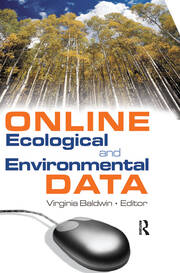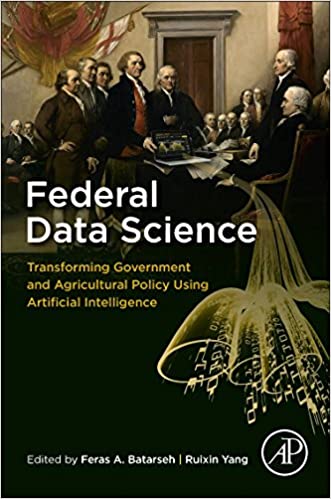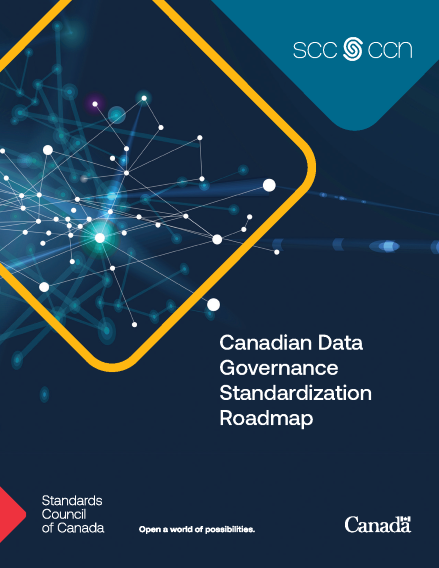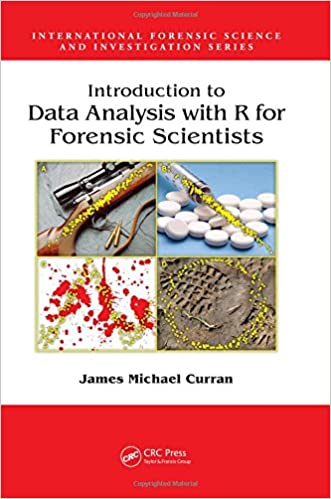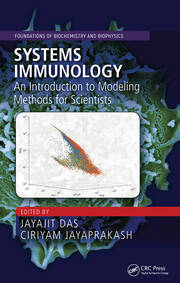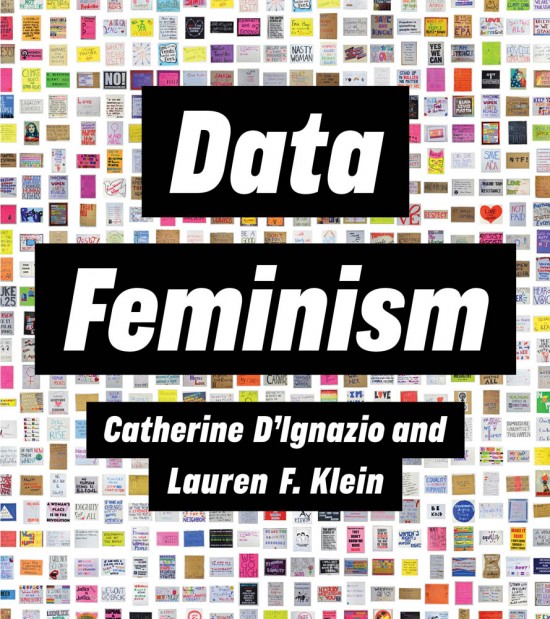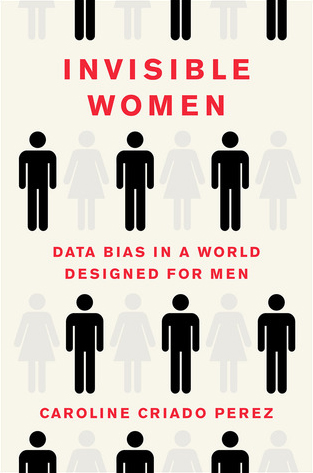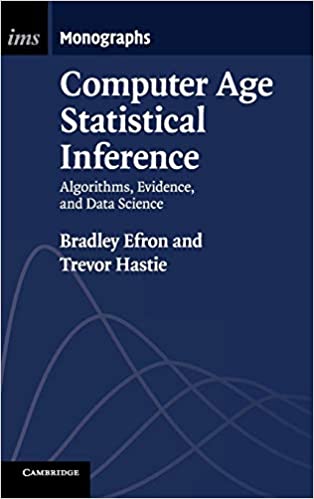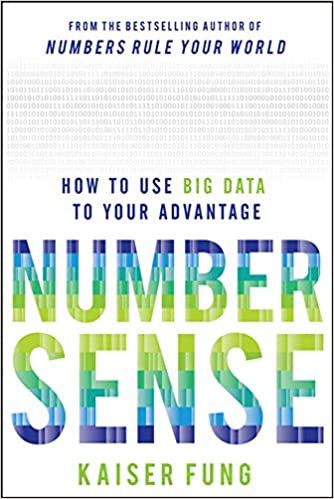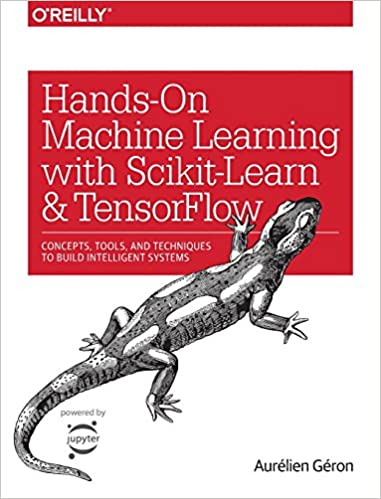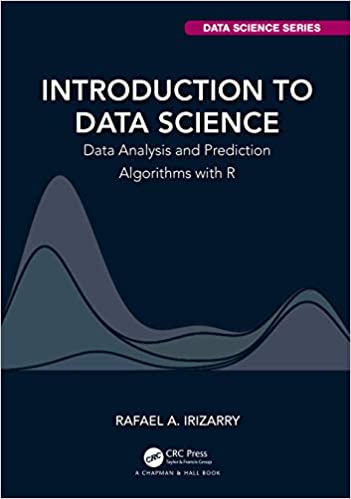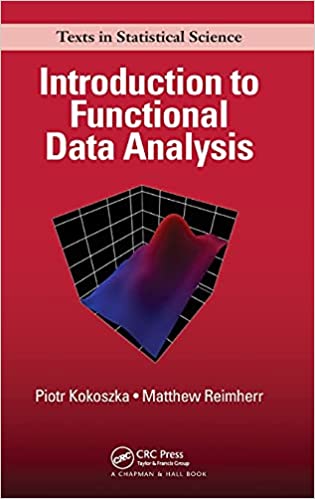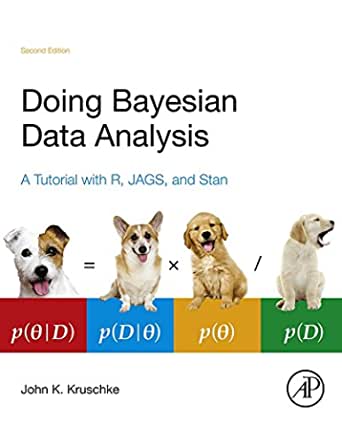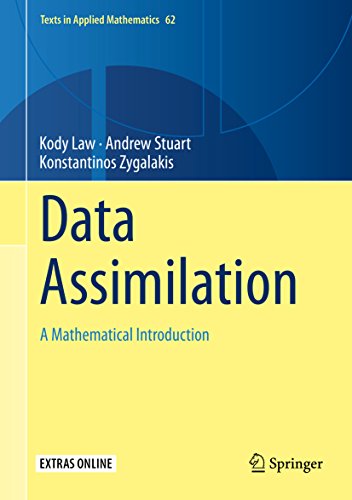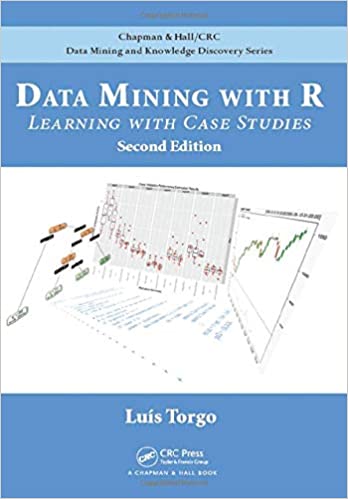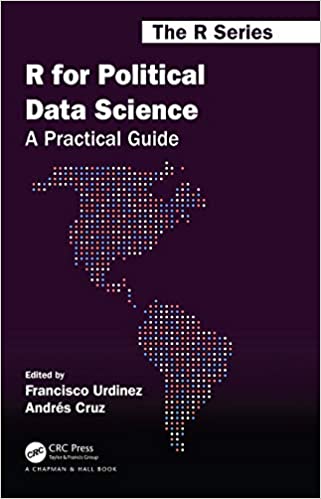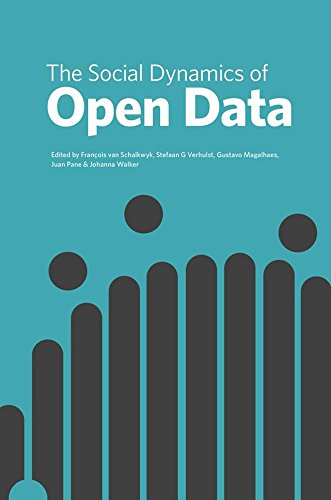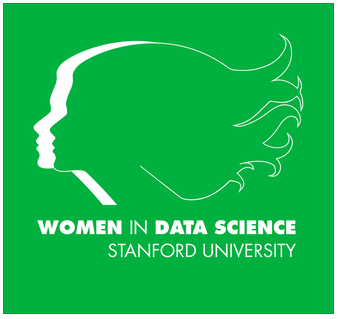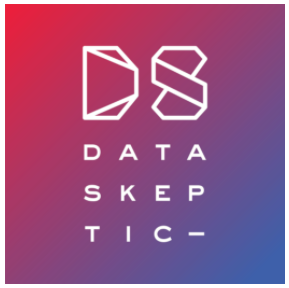Important: The GCConnex decommission will not affect GCCollab or GCWiki. Thank you and happy collaborating!
Difference between revisions of "Discover more about data"
Sharon.twiss (talk | contribs) m |
Sharon.twiss (talk | contribs) m |
||
| Line 168: | Line 168: | ||
<p>Introduction to Functional Data Analysis provides a concise textbook introduction to the field. It explains how to analyze functional data, both at exploratory and inferential levels. It also provides a systematic and accessible exposition of the methodology and the required mathematical framework. The book can be used as textbook for a semester-long course on FDA for advanced undergraduate or MS statistics majors, as well as for MS and PhD students in other disciplines, including applied mathematics, environmental science, public health, medical research, geophysical sciences and economics. It can also be used for self-study and as a reference for researchers in those fields who wish to acquire solid understanding of FDA methodology and practical guidance for its implementation.</p> | <p>Introduction to Functional Data Analysis provides a concise textbook introduction to the field. It explains how to analyze functional data, both at exploratory and inferential levels. It also provides a systematic and accessible exposition of the methodology and the required mathematical framework. The book can be used as textbook for a semester-long course on FDA for advanced undergraduate or MS statistics majors, as well as for MS and PhD students in other disciplines, including applied mathematics, environmental science, public health, medical research, geophysical sciences and economics. It can also be used for self-study and as a reference for researchers in those fields who wish to acquire solid understanding of FDA methodology and practical guidance for its implementation.</p> | ||
<p class="recco">Recommended by Agriculture and Agri-Food Canada, a GC Data Community partner</p> | <p class="recco">Recommended by Agriculture and Agri-Food Canada, a GC Data Community partner</p> | ||
| − | <br> | + | <br> |
| + | <br> | ||
[[Image:Doing-Bayesian-data-analysis.jpg|150px|Doing Bayesian data analysis]] | [[Image:Doing-Bayesian-data-analysis.jpg|150px|Doing Bayesian data analysis]] | ||
Revision as of 15:59, 6 February 2022
Register now Conference agenda Conference speakers
Brought to you by Statistics Canada and the Canada School of Public Service with support from the GC Data Community
Discover more about data
Learning
Digital Academy's Discover Series: Discover Data
An introduction to data in the Government of Canada: Discover how the data revolution is shaping government today and how the effective use of data creates opportunities to improve programs and services for Canadians.
How Data Literate Are You? (online, self-paced)
A Self-Directed Guide to Understanding Data (online, self-paced)
The Role of Data in Digital Government (virtual classroom)
Books and reports
Introduction to Online Ecological and Environmental Data
The advent of the Internet and proliferation of materials on it has brought significant and rapid change in scholarly communication. Perhaps more gradually has come the posting of research data for sharing with other researchers in the field. This volume describes several projects that have made environmental and ecological researchers' data freely available online. Librarians from the National Aeronautics and Space Administration (NASA), the United States Geological Survey (USGS), from one regional agency based in Oregon, one university, and one research corporation describe aspects of the online data projects developed by their respective institutions. A sixth paper, from a librarian at State University of New York University at Buffalo, follows the development of online research data in a specific field, acid rain research, from a variety of types of research programs. A common theme in these papers is the interdisciplinary involvement of researchers who produce and use data in the fields of environmental and ecological studies.
Recommended by Agriculture and Agri-Food Canada, a GC Data Community partner
Federal data science: transforming government and agricultural policy using artificial intelligence
Federal Data Science serves as a guide for federal software engineers, government analysts, economists, researchers, data scientists, and engineering managers in deploying data analytics methods to governmental processes. Driven by open government (2009) and big data (2012) initiatives, federal agencies have a serious need to implement intelligent data management methods, share their data, and deploy advanced analytics to their processes. Using federal data for reactive decision making is not sufficient anymore, intelligent data systems allow for proactive activities that lead to benefits such as: improved citizen services, higher accountability, reduced delivery inefficiencies, lower costs, enhanced national insights, and better policy making. No other government-dedicated work has been found in literature that addresses this broad topic. This book provides multiple use-cases, describes federal data science benefits, and fills the gap in this critical and timely area.
Recommended by Agriculture and Agri-Food Canada, a GC Data Community partner
Canadian Data Governance Standardization Collaborative Roadmap (June 2021)
The Canadian Data Governance Standardization Roadmap tackles the challenging questions we face when we talk about standardization and data governance. It describes the current and desired Canadian standardization landscape and makes 35 recommendations to address gaps and explore new areas where standards and conformity assessment are needed.
SCC established the Canadian Data Governance Standardization Collaborative in 2019 to accelerate the development of industry-wide data governance standardization strategies. The Collaborative spent the past two years working together to build a standardization Roadmap. The Canadian Data Governance Standardization Collaborative is a group of 220 Canadians across government, industry, civil society, Indigenous organizations, academia, and standards development organizations.
Recommended by the Standards Council of Canada, friend of the GC Data Community
Introduction to data analysis with R for forensic scientists (Vol. 21)
Statistical methods provide a logical, coherent framework in which data from experimental science can be analyzed. However, many researchers lack the statistical skills or resources that would allow them to explore their data to its full potential. Introduction to Data Analysis with R for Forensic Sciences minimizes theory and mathematics and focuses on the application and practice of statistics to provide researchers with the dexterity necessary to systematically analyze data discovered from the fruits of their research. Using traditional techniques and employing examples and tutorials with real data collected from experiments, this book presents the following critical information necessary for researchers: A refresher on basic statistics and an introduction to R Considerations and techniques for the visual display of data through graphics; An overview of statistical hypothesis tests and the reasoning behind them; A comprehensive guide to the use of the linear model, the foundation of most statistics encountered; An introduction to extensions to the linear model for commonly encountered scenarios.
Recommended by Agriculture and Agri-Food Canada, a GC Data Community partner
Systems immunology: an introduction to modeling methods for scientists
This book provides a complete overview of computational immunology, from basic concepts to mathematical modeling at the single molecule, cellular, organism, and population levels. It showcases modern mechanistic models and their use in making predictions, designing experiments, and elucidating underlying biochemical processes. It begins with an introduction to data analysis, approximations, and assumptions used in model building. Core chapters address models and methods for studying immune responses, with fundamental concepts clearly defined. Readers from immunology, quantitative biology, and applied physics will benefit from the following: Fundamental principles of computational immunology and modern quantitative methods for studying immune response at the single molecule, cellular, organism, and population levels. An overview of basic concepts in modeling and data analysis. Coverage of topics where mechanistic modeling has contributed substantially to current understanding. Discussion of genetic diversity of the immune system, cell signaling in the immune system, immune response at the cell population scale, and ecology of host-pathogen interactions.
Recommended by Agriculture and Agri-Food Canada, a GC Data Community partner
Data Feminism: A new way of thinking about data science and data ethics that is informed by the ideas of intersectional feminism.
Today, data science is a form of power. It has been used to expose injustice, improve health outcomes, and topple governments. But it has also been used to discriminate, police, and surveil. This potential for good, on the one hand, and harm, on the other, makes it essential to ask: Data science by whom? Data science for whom? Data science with whose interests in mind? The narratives around big data and data science are overwhelmingly white, male, and techno-heroic. In Data Feminism, Catherine D'Ignazio and Lauren Klein present a new way of thinking about data science and data ethics—one that is informed by intersectional feminist thought.
Data Feminism offers strategies for data scientists seeking to learn how feminism can help them work toward justice, and for feminists who want to focus their efforts on the growing field of data science. But Data Feminism is about much more than gender. It is about power, about who has it and who doesn't, and about how those differentials of power can be challenged and changed.
Recommended by the Office of the CIO of Canada, Treasury Board of Canada Secretariat, a GC Data Community partner
Invisible Women: Data Bias in a World Designed for Men
Data is fundamental to the modern world. From economic development, to healthcare, to education and public policy, we rely on numbers to allocate resources and make crucial decisions. But because so much data fails to take into account gender, because it treats men as the default and women as atypical, bias and discrimination are baked into our systems. And women pay tremendous costs for this bias, in time, money, and often with their lives.
Celebrated feminist advocate Caroline Criado Perez investigates the shocking root cause of gender inequality and research in Invisible Women, diving into women’s lives at home, the workplace, the public square, the doctor’s office, and more. Built on hundreds of studies in the US, the UK, and around the world, and written with energy, wit, and sparkling intelligence, this is a groundbreaking, unforgettable exposé that will change the way you look at the world.
Recommended by the Office of the CIO of Canada, Treasury Board of Canada Secretariat, a GC Data Community partner
Computer age statistical inference: Algorithms, evidence, and data science
The twenty-first century has seen a breathtaking expansion of statistical methodology, both in scope and in influence. 'Big data', 'data science', and 'machine learning' have become familiar terms in the news, as statistical methods are brought to bear upon the enormous data sets of modern science and commerce. How did we get here? And where are we going? This book takes us on an exhilarating journey through the revolution in data analysis following the introduction of electronic computation in the 1950s. Beginning with classical inferential theories - Bayesian, frequentist, Fisherian - individual chapters take up a series of influential topics: survival analysis, logistic regression, empirical Bayes, the jackknife and bootstrap, random forests, neural networks, Markov chain Monte Carlo, inference after model selection, and dozens more. The distinctly modern approach integrates methodology and algorithms with statistical inference. The book ends with speculation on the future direction of statistics and data science.
Recommended by Agriculture and Agri-Food Canada, a GC Data Community partner
Numbersense: How to Use Big Data to Your Advantage
We live in a world of Big Data--and it's getting bigger every day. Virtually every choice we make hinges on how someone generates data . . . and how someone else interprets it--whether we realize it or not. The problem is, the more data we have, the more difficult it is to interpret it. From world leaders to average citizens, everyone is prone to making critical decisions based on poor data interpretations.
Numbersense gives you the insight into how Big Data interpretation works--and how it too often doesn't work. You won't come away with the skills of a professional statistician, but you will have a keen understanding of the data traps even the best statisticians can fall into, and you'll trust the mental alarm that goes off in your head when something just doesn't seem to add up.
Recommended by the Office of the CIO of Canada, Treasury Board of Canada Secretariat, a GC Data Community partner
Hands-on machine learning with Scikit-Learn and TensorFlow: concepts, tools, and techniques to build intelligent systems
By using concrete examples, minimal theory, and two production-ready Python frameworks—scikit-learn and TensorFlow—author Aurélien Géron helps you gain an intuitive understanding of the concepts and tools for building intelligent systems. You’ll learn a range of techniques, starting with simple linear regression and progressing to deep neural networks. With exercises in each chapter to help you apply what you’ve learned, all you need is programming experience to get started.
Recommended by Agriculture and Agri-Food Canada, a GC Data Community partner
Introduction to data science: data analysis and prediction algorithms with R
Introduction to Data Science: Data Analysis and Prediction Algorithms with R introduces concepts and skills that can help you tackle real-world data analysis challenges. It covers concepts from probability, statistical inference, linear regression, and machine learning. It also helps you develop skills such as R programming, data wrangling, data visualization, predictive algorithm building, file organization with UNIX/Linux shell, version control with Git and GitHub, and reproducible document preparation. This book is a textbook for a first course in data science. No previous knowledge of R is necessary, although some experience with programming may be helpful. The book is divided into six parts: R, data visualization, statistics with R, data wrangling, machine learning, and productivity tools. Each part has several chapters meant to be presented as one lecture. The author uses motivating case studies that realistically mimic a data scientist's experience.
Recommended by Agriculture and Agri-Food Canada, a GC Data Community partner
Introduction to functional data analysis
Introduction to Functional Data Analysis provides a concise textbook introduction to the field. It explains how to analyze functional data, both at exploratory and inferential levels. It also provides a systematic and accessible exposition of the methodology and the required mathematical framework. The book can be used as textbook for a semester-long course on FDA for advanced undergraduate or MS statistics majors, as well as for MS and PhD students in other disciplines, including applied mathematics, environmental science, public health, medical research, geophysical sciences and economics. It can also be used for self-study and as a reference for researchers in those fields who wish to acquire solid understanding of FDA methodology and practical guidance for its implementation.
Recommended by Agriculture and Agri-Food Canada, a GC Data Community partner
Doing Bayesian data analysis: a tutorial with R, JAGS, and Stan
Doing Bayesian data analysis: a tutorial with R, JAGS, and Stan. Amsterdam, Academic Press. Provides an accessible approach to Bayesian data analysis, as material is explained clearly with concrete examples. The book begins with the basics, including essential concepts of probability and random sampling, and gradually progresses to advanced hierarchical modeling methods for realistic data.
Recommended by Agriculture and Agri-Food Canada, a GC Data Community partner
Data Assimilation: A Mathematical Introduction (Texts in Applied Mathematics Book 62)
This book provides a systematic treatment of the mathematical underpinnings of work in data assimilation, covering both theoretical and computational approaches. Specifically the authors develop a unified mathematical framework in which a Bayesian formulation of the problem provides the bedrock for the derivation, development and analysis of algorithms; the many examples used in the text, together with the algorithms which are introduced and discussed, are all illustrated by the MATLAB software detailed in the book and made freely available online. The book is organized into nine chapters: the first contains a brief introduction to the mathematical tools around which the material is organized; the next four are concerned with discrete time dynamical systems and discrete time data; the last four are concerned with continuous time dynamical systems and continuous time data and are organized analogously to the corresponding discrete time chapters. This book is aimed at mathematical researchers interested in a systematic development of this interdisciplinary field, and at researchers from the geosciences, and a variety of other scientific fields, who use tools from data assimilation to combine data with time-dependent models.
Recommended by Agriculture and Agri-Food Canada, a GC Data Community partner
Data Mining with R: Learning with Case Studies, Second Edition
Data Mining with R: Learning with Case Studies, Second Edition uses practical examples to illustrate the power of R and data mining. Providing an extensive update to the best-selling first edition, this new edition is divided into two parts. The first part will feature introductory material, including a new chapter that provides an introduction to data mining, to complement the already existing introduction to R. The second part includes case studies, and the new edition strongly revises the R code of the case studies making it more up-to-date with recent packages that have emerged in R. The book does not assume any prior knowledge about R. Readers who are new to R and data mining should be able to follow the case studies, and they are designed to be self-contained so the reader can start anywhere in the document. The book is accompanied by a set of freely available R source files that can be obtained at the book’s web site. These files include all the code used in the case studies, and they facilitate the "do-it-yourself" approach followed in the book. Designed for users of data analysis tools, as well as researchers and developers, the book should be useful for anyone interested in entering the "world" of R and data mining.
Recommended by Agriculture and Agri-Food Canada, a GC Data Community partner
R for Political Data Science: A Practical Guide
R for Political Data Science: A Practical Guide is a handbook for political scientists new to R who want to learn the most useful and common ways to interpret and analyze political data. It was written by political scientists, thinking about the many real-world problems faced in their work. The book has 16 chapters and is organized in three sections. The first, on the use of R, is for those users who are learning R or are migrating from another software. The second section, on econometric models, covers OLS, binary and survival models, panel data, and causal inference. The third section is a data science toolbox of some the most useful tools in the discipline: data imputation, fuzzy merge of large datasets, web mining, quantitative text analysis, network analysis, mapping, spatial cluster analysis, and principal component analysis. As the title suggests, this book is highly applied in nature, and is designed as a toolbox for the reader. It can be used in methods and data science courses, at both the undergraduate and graduate levels. It will be equally useful for a university student pursuing a PhD, political consultants, or a public official, all of whom need to transform their datasets into substantive and easily interpretable conclusions.
Recommended by Agriculture and Agri-Food Canada, a GC Data Community partner
The Social Dynamics of Open Data
The Social Dynamics of Open Data is a collection of peer reviewed papers presented at the 2nd Open Data Research Symposium (ODRS) held in Madrid, Spain, on 5 October 2016. Research is critical to developing a more rigorous and fine-combed analysis not only of why open data is valuable, but how it is valuable and under what specific conditions. The objective of the Open Data Research Symposium and the subsequent collection of chapters published here is to build such a stronger evidence base. This base is essential to understanding what open data's impacts have been to date, and how positive impacts can be enabled and amplified. Consequently, common to the majority of chapters in this collection is the attempt by the authors to draw on existing scientific theories, and to apply them to open data to better explain the socially embedded dynamics that account for open data's successes and failures in contributing to a more equitable and just society.
Recommended by Agriculture and Agri-Food Canada, a GC Data Community partner
Articles and blog posts
Creating Compelling Data Visualizations
Data visualization is a key component in many data science projects. For some stakeholders, especially subject matter experts and executives who may not be technical experts, it is the primary avenue by which they see, understand and interact with data projects. Consequently, it is important that visualizations communicate insights as clearly as possible. But too often, visualizations are hindered by some common flaws that make them difficult to interpret, or worse yet, are misleading. This article will review three common visualization pitfalls that both data communicators and data consumers should understand, as well as some practical suggestions for getting around them.
Recommended by the Office of the CIO of Canada, Treasury Board of Canada Secretariat, a GC Data Community partner
Newsletters
The AI Ethics Brief, from the Montreal AI Ethics Institute
The Montreal AI Ethics Institute is an international non-profit organization democratizing AI ethics literacy. Subscribe to get full access to the newsletter and have the latest from the field of AI ethics delivered right to your inbox every week. Never miss an update from the work being done at the Montreal AI Ethics Institute and our thoughts on research and development in the field from around the world.
Recommended by Agriculture and Agri-Food Canada, a GC Data Community partner
Podcasts
Women in Data Science podcast
Leading women in data science share their work, advice, and lessons learned along the way with Professor Margot Gerritsen from Stanford University. Hear about how data science is being applied and having impact across a wide range of domains, from healthcare to finance to cosmology to human rights and more.
Recommended by Agriculture and Agri-Food Canada, a GC Data Community partner
Data Skeptic podcast
Your trusted podcast, centered on data science, machine learning, and artificial intelligence.
Recommended by Agriculture and Agri-Food Canada, a GC Data Community partner
GC Data Community | Contact us | Subscribe | Join us on GCcollab | GC Data Community Partners


